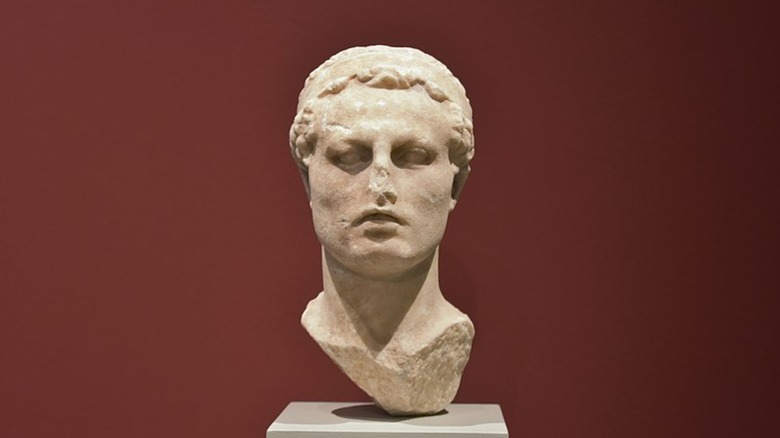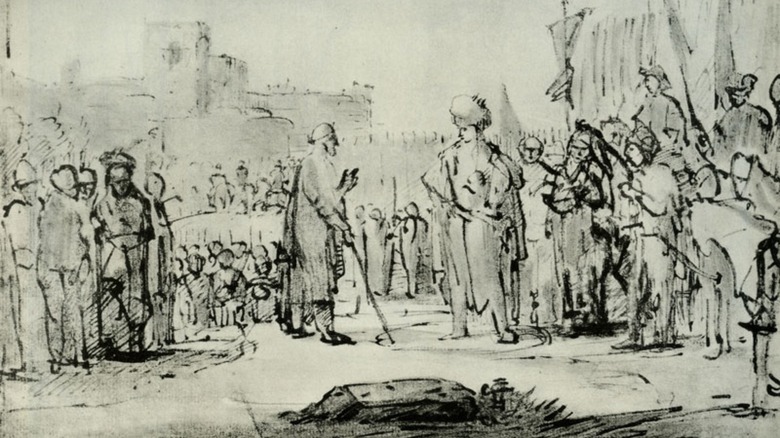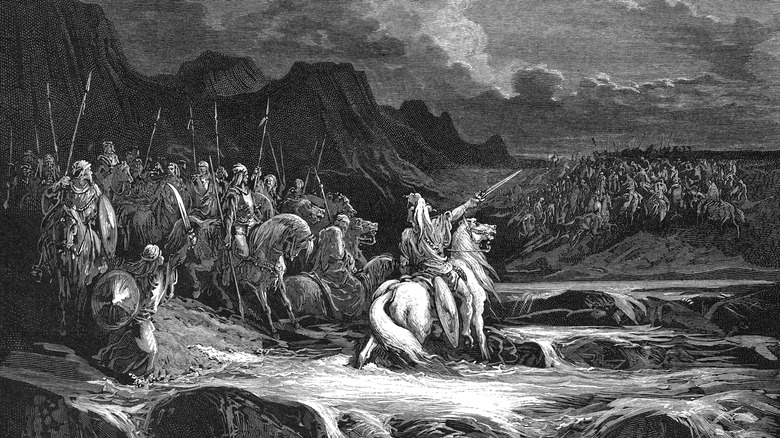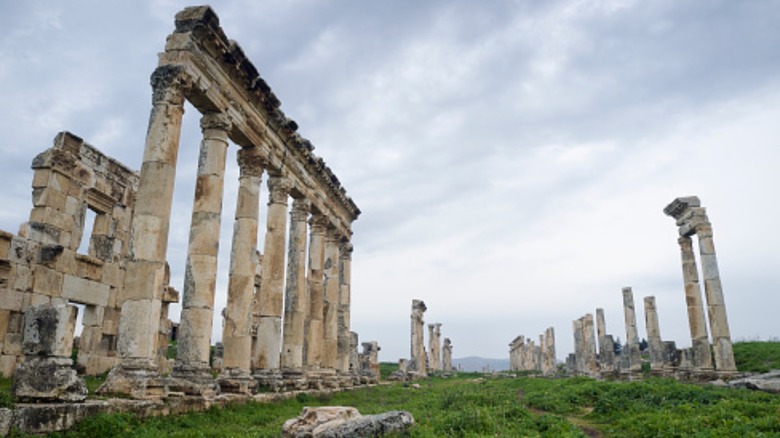Who Was Antiochus IV Epiphanes?
On paper, the ancient practice of hereditary succession is simple. In countless empires and monarchies the world over, it has been expected for rule to pass from a head of state to one of their descendants, usually the oldest son. But throughout history, succession has often failed to go according to plan, with power-hungry individuals using political intrigue, popular support, and even murder to skip the line and grab rule for themselves.
Such was the case with Antiochus IV Epiphanes, the king of the Seleucid Empire in modern-day Syria who ruled from 175 to 164 BCE. Antiochus was the son of the ruler Antiochus III, but rule was meant to be passed down through the line of his elder brother, Seleucus IV, to his nephew Demetrius. But when Seleucus was murdered, Antiochus decided to seize power from the underage heir. Immediately after doing so, he turned his attention to invading neighboring Egypt, a move he believed would help cushion the Seleucid Empire from the oncoming Roman expansion. However, Antiochus IV Epiphanes eventually found his plans to grow his empire and resist Rome to be unattainable, and instead his rule became consumed by the perceived need for cultural purity in the Seleucid Empire. It would lead to a brutal and bloody conflict with the Jewish population of his empire, whom he attempted to Hellenize, leading to the War of the Maccabees which would see him remembered as one of the period's most evil rulers.
[Featured image by Richard Mortel via Wikimedia Commons | Cropped and scaled | CC BY 2.0]
A battler humiliated
Antiochus IV Epiphanes was a ruler with two sides to him. On one hand, he was a wildly generous and giving king, whose reign was characterized by extravagant, unexpected, and often eccentric gifts and the sharing of luxuries. Famously, he would give out handfuls of cash to everyday people when his retinue was passing through the streets and would give unexpected gifts to strangers and throw lavish feasts. While his generosity may have been appreciated by the recipients of his gifts, in general he was viewed with suspicion for his profligacy, and he was dubbed "madman" by many of his subjects, per Jewish Encyclopedia.
He was also deemed eccentric in terms of his foreign policy, especially his attempt to conquer Egypt which previous rulers of the Seleucid Empire had deemed impossible, however Egypt was emerging as a land that would offer a strategic boon to Antiochus could he keep it in his grasp. Antiochus was almost immediate in his assault on the country, and he managed to control almost the entirety of Egypt bar the city of Alexandria, and secure his control by installing his nephew Ptolemy VI as the Egyptian ruler, though he was controlled by Antiochus. Everything seemed to be going the Seleucidians' way, but the might of Rome soon reared its head. After various skirmishes in the area, the Roman emissary Gaius Popillius Laenas confronted the Seleucidian king with the demand that he withdraw from Egypt or face war with Rome. Facing an ultimatum, Antiochus reluctantly backed down, but another war was already raging in his lands.
The Wars of the Maccabees
Antiochus IV Epiphanes has retained a notorious place in history due to his attempts to suppress the Jewish population of his empire, the story of which would later be told in the books Maccabees 1 and Maccabees 2 in the Hebrew Bible. Antiochus' persecution of the Jews reportedly came amid his desire to homogenize the empire under one common Greek or Hellenic culture, as evidenced by his funding of Greek amenities including theaters and an aqueduct, as well as several notable temples to Greek gods, such as Zeus.
At the same time, Antiochus took steps to suppress Jewish religious practices and Jewish culture. As Bezalel Bar-Kochva highlights in "Judas Maccabaeus: The Jewish Struggle Against the Seleucids," some sources claim that Antiochus had grown more manic and unpredictable after his defeat in Egypt, and that he grew "wicked," a word that became affixed to his name in rabbinical texts, according to the Jewish Encyclopedia.
Under Antiochus, who originally permitted exceptions for Jewish religion and culture, it became a capital offense to practice Judaism, and the Temple of Jerusalem was desecrated at his order with a shrine to Zeus and an idol of Antiochus himself. The hardline persecution led to a rebellion with a man named Judas Maccabaeus as its leader (pictured), with his followers known as Maccabees. Though Antiochus boasted a sprawling army at the time — one which he displayed in its grandeur during parades — the Maccabees were able to sustain a long guerilla war against the king, whose forces were also divided in other conflicts. Eventually, Maccabaeus seized control of the majority of Judaea at Antiochus' expense.
A legacy of decline
Antiochus IV Epiphanes died only a few years later in 164 BCE, having ruled the Seleucid Empire for 11 years, by which time it was much diminished on the world stage. His death would lead to a longer period of instability that would ultimately prove disastrous for the once-great empire.
After Antiochus a series of conflicts began, known to historians as The Seleucid Dynastic Wars, which began with the return of Demetrius, the nephew who was exiled in Rome at the time of the death of Antiochus III and whose right to the throne was suppressed. After claiming the throne, Demetrius attempted to regain control of Judaea but died in battle against Alexander Balas, an impostor backed by Rome and Egypt who claimed to be the son of Antiochus IV Epiphanes. Balas became ruler, but five years later he was killed after an uprising by Demetrius' son, Demetrius II, who himself was later assassinated.
Such conflicts over control of the empire continued in such a way for decades, a period of irreversible decline. But soon, the attempts of those who sought to seize rule over the Seleucids were shown to be in vain. In 63 BCE, the lands of the Seleucid Empire fell under the control of Rome, and Antiochus' once great empire was no more.



